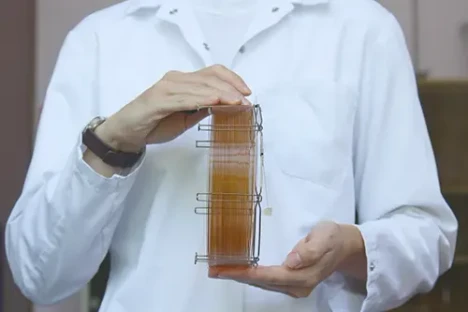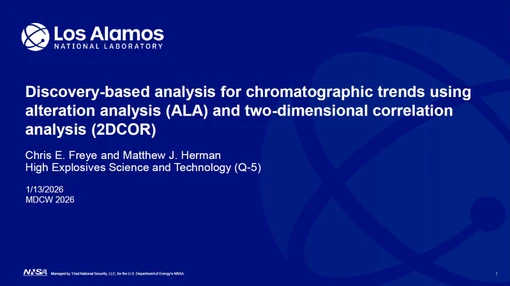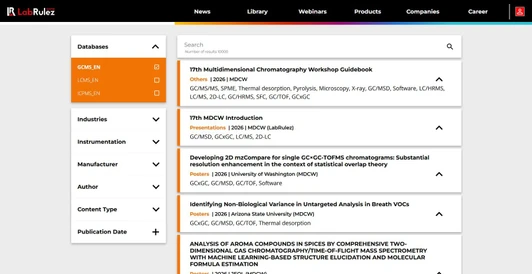Enhanced Security Through Centralized Data Management: A guide for Chromatography and Mass Spectrometry Users

- Photo: Thermo Fisher Scientific: Enhanced Security Through Centralized Data Management: A guide for Chromatography and Mass Spectrometry Users
- Video: Chromatography & Mass Spectrometry Solutions: Thermo Scientific Chromeleon XTR Laboratory Management System (LMS) Software
For analytical scientists working with chromatography and mass spectrometry, protecting sensitive information is crucial. Advances in instrument and software technology, combined with increased demands for in-depth analytics, has significantly increased the volume of valuable data that must be safeguarded from unauthorized access and potential breaches. One effective strategy to enhance security is to centralize data management, storing data away from the initial point of acquisition. Let us explore how this approach can significantly strengthen security for chromatography and mass spectrometry users and facilitate adherence to regulatory compliance measures surrounding electronic records.
Understanding the analytical science landscape
Chromatography and mass spectrometry are critical techniques in many fields including pharmaceuticals, environmental analysis and biochemistry. The data generated from these methods includes intricate details about potentially proprietary chemical compositions and biological information. Protecting this data is crucial to maintaining the integrity of scientific research and the competitive edge of organizations.
 Thermo Fisher Scientific: Enhanced Security Through Centralized Data Management - A guide for Chromatography and Mass Spectrometry Users
Thermo Fisher Scientific: Enhanced Security Through Centralized Data Management - A guide for Chromatography and Mass Spectrometry Users
The data security challenge
Data acquisition, processing, storage and reporting has traditionally been conducted on isolated, static hardware-bound workstations. This approach presents significant security risks:
- Single point of failure: An isolated system with poor backup strategies can be vulnerable to catastrophic data loss via accidental damage or environmental changes. Any compromise can lead to data corruption, loss or unauthorized alterations.
- Accessibility and convenience: Storing and processing data in a noisy lab environment can be inconvenient and impractical. Technical staff are often competing for access to instruments using the same workstation that others need for processing. This often leads to users manually transferring data outside of a controlled system for processing elsewhere.
The case for centralized data management
Centralizing data management involves storing data in a central server location, away from the initial point of data acquisition. Here is how this approach can enhance security and usability for chromatography and mass spectrometry users:
- Reduced risk: A centralized system that has redundancies and backups in place can alleviate the risks associated with a single point of failure. Attackers trying to gain access will also have to deal with robust security measures not typically seen with isolated workstations
- Enhanced data integrity: With separate systems for acquisition and storage, the integrity of the data is better preserved. Any unauthorized changes on the acquisition workstation will not directly affect the stored data.
- Remote access and flexibility: Centralized data storage allows users to securely and conveniently access data from anywhere without manual transfer or copying the data.
Data retention, integrity and auditing
Compliance with regulatory bodies such as the FDA (Food and Drug Administration) and EMA (European Medicines Agency) involves meeting stringent requirements for data integrity, security and retention. Centralized data management can help meet these requirements.
- Data integrity and audit trails: Separating acquisition from storage lets organizations ensure long-term raw data integrity and traceability by controlling access and providing audit trails.
- Secure data retention: Regulations often mandate that data submissions be stored securely for extended periods. Dedicated data storage solutions can be designed to meet these requirements of large data volumes in a cost-effective way, while also protecting data from unauthorized access, accidental damage and environmental threats.
Practical implementation considerations for data security
Chromatography and mass spectrometry users looking to deploy a centralized data management system should consider some data security essentials:
- Secure data transfer protocols: Use of encrypted channels for transferring data from the acquisition point to the central storage system.
- Robust authentication mechanisms: Multi-factor authentication (MFA) to control access to both acquisition and storage systems. Single sign-on (SSO) systems also offer convenience.
- Accessible audit trails and monitoring: Conducting regular security audits and continuous monitoring to detect and respond to potential threats promptly.
- Leverage cloud solutions: Consider using cloud-based solutions that offer built-in security features for both data acquisition and storage. Many cloud providers offer specialized services that can help segregate these functions securely.
- Compliance-focused data management: Ensure that the data management strategy aligns with regulatory requirements for data integrity, security and retention. This includes maintaining detailed records of data acquisition, storage, and processing activities.
Conclusion
Centralizing data management by storing data away from the initial point of acquisition is a powerful strategy to enhance data security and facilitate regulatory compliance. Centralized data can be securely managed and shared remotely, allowing users to access data independently from the lab-bound workstations used for acquisition. Adopting secure data transfer protocols and robust authentication mechanisms can be made easier with modern cloud solutions. Scientists should feel empowered by these tools to protect their valuable data and maintain the integrity of their research.
- Kleppmann, M., 2017. Designing Data-Intensive Applications: The Big Ideas Behind Reliable, Scalable, and Maintainable Systems. O’Reilly Media. ISBN: 9781663728289
- Good Data Management Practices by FDA
- Data Integrity: The FDA’s Current Thinking by FDA
- FDA 21 CFR Part 11: Electronic Records; Electronic Signatures
- EMA Annex 11: Computerised Systems
- ICH Q7: Good Manufacturing Practice Guide for Active Pharmaceutical Ingredients
- Understanding 21 CFR Part 11 by MasterControl




